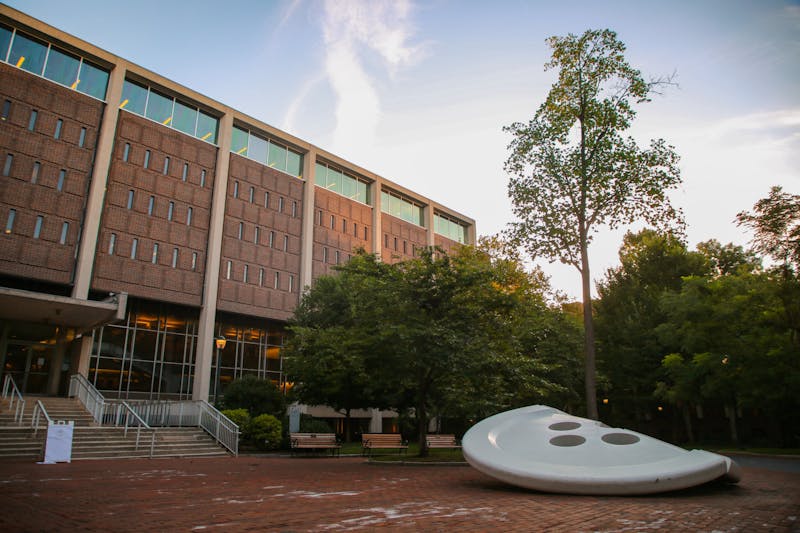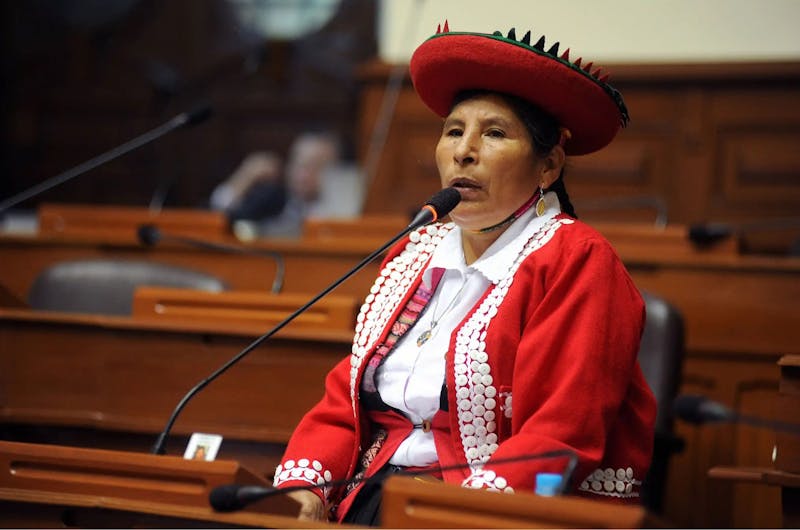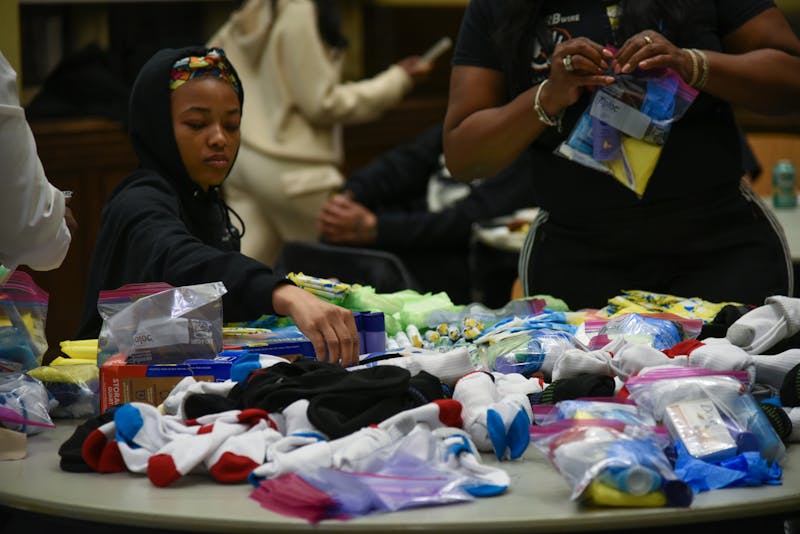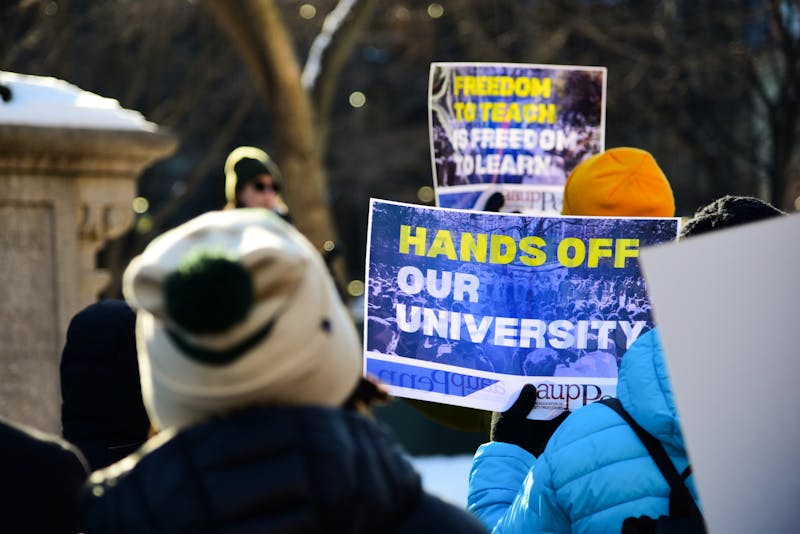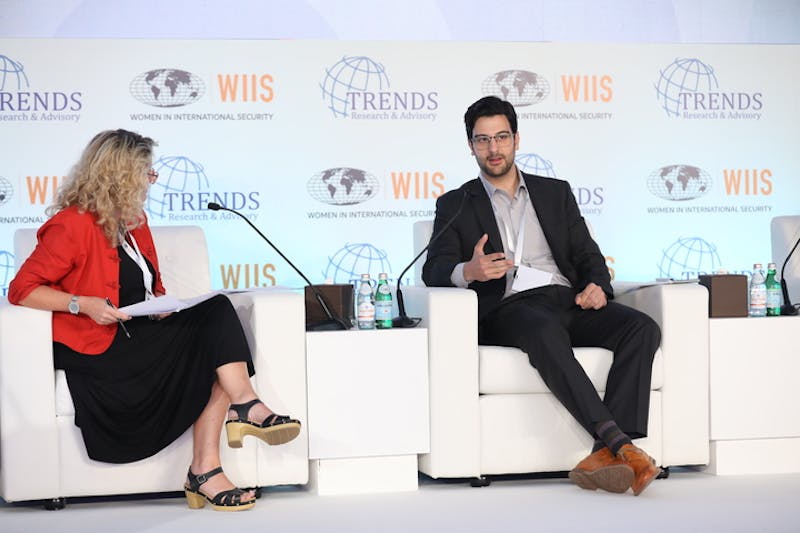
Penn Reproductive Justice held its inaugural conference in the Forum at the Perelman Center for Political Science and Economics on March 23.
The conference featured four panels, a workshop, and over 15 speakers, with representatives from co-sponsoring organizations including the Penn Women’s Center, LGBT Center, and Penn Association for Gender Equity. The event aimed to raise awareness about various facets of reproductive justice, including intersectionality, activism, healthcare, and law.
“A lot of people think that reproductive justice is only about access to abortion, but there’s […] a whole other side of it,” College junior and PRJ co-founder Annabelle Jin said. “It’s not just about the right to not have children. It’s also about the right to have children and have them in safe communities.”
Jin served as the lead organizer of the event alongside College junior Claire Jun and College senior Neha Shetty. All three of them delivered the opening remarks of the conference.
“We hope that you come away from this conference with a deeper understanding of the way that reproductive justice touches all aspects of our lives, and also come away with a strong commitment to taking action in our community,” Shetty said.
The event’s four panels consisted of speakers spanning various sectors of reproductive justice and of different cultural backgrounds. Hazel Ekeke, Nursing first year and the event's speaker coordinator, emphasized the importance of diversity and inclusion within the panel.
“Reproductive justice is something that affects, that is important to […] every single marginalized community,” Ekeke said. “We made sure we had representation of indigenous communities, representation of black culture, as [reproductive justice] is rooted in black culture.”
To organize the lineup of over 15 speakers, Ekeke drew upon her previous connections from the reproductive justice activism she had done in high school. As a student in the School of Nursing, she was able to contact midwives and doulas affiliated with the school. Jin also aided in the effort, reaching out to several reproductive justice clubs at different universities to ask for speaker recommendations.
“Throughout this process, we wanted to make sure that we had varying perspectives,” Jin said. “We didn’t want only physicians. We wanted nursing professionals, midwives, doulas, and people who did public research.”
Lucía Stavig, a postdoctoral fellow at the Center for Latin American and Latinx Studies studying reproductive and indigenous justice, spoke on the “Intersections of Repro Justice” panel. She discussed the impact of her identity on her reproductive justice work.
“My mother is from Peru. My dad was from the US, and they met in Cusco, so my roots run very deep there,” Stavig said.
She said that when she learned about forced sterilizations happening in Peru, she began conducting research and writing academic papers on the trauma that affected women had endured.
In addition to the panels, the event showcased a keynote address by Kimberly Mutcherson of Rutgers Law School. She spoke on the complex relationship between reproductive justice and governmental institutions, referencing legal precedents such as Roe v. Wade and the Alabama Supreme Court’s total abortion ban.
“We are living through an extraordinary time, and times that I think really tragically highlight how ordinary, how every day, how American-as-apple-pie oppression is in this country,” Mutcherson said. “Reproductive justice demands that we recognize […] that our freedom depends on removing the shackles from others, even if they are very different from our own.”
College sophomore Rinah Asaah said that the conference was informative and exposed her to “different avenues” of reproductive justice. Asaah said that at Penn, there is an emphasis on theory and discussion about how to impact the community regarding the topic of reproductive justice.
“But that’s not necessarily enough,” Asaah said. “You have to actually put the things that you learn into practice.”
Throughout the day, participants were invited to a table to write down feedback regarding the conference on small slips of paper. Examples of feedback notes received include: “I didn't know reproductive health extended to so many areas, and I found out today that there's so little known about our bodies,” and “Innovation and justice starts here and it starts with you.”
“Hearing this sort of feedback is really gratifying to me because that is one of the biggest aims that I had in organizing this,” Shetty said. “It’s very inspiring to know that this conference was able to inspire other people in their own activism and education journey.”
The Daily Pennsylvanian is an independent, student-run newspaper. Please consider making a donation to support the coverage that shapes the University. Your generosity ensures a future of strong journalism at Penn.
Donate




